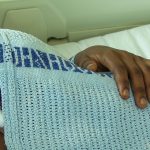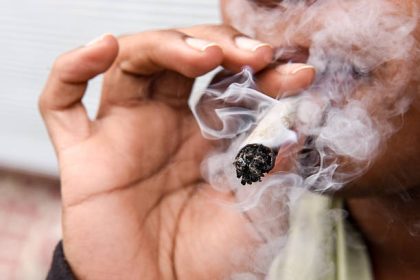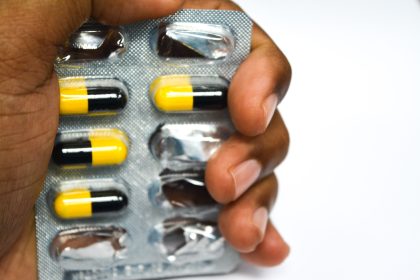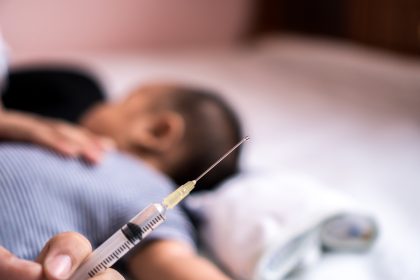Most public hospitals in Kenya are primarily run by medical interns working 36-hour shifts without salary, nursing abuse from seniors in toxic workplaces that drive most up the ward wall
Disclaimer: This story touches on sensitive issues, including Gender-Based Violence, suicide and mental health- which may be distressing to some audiences. It may stir emotions and evoke painful memories. Please approach with care and pause if needed.
“Another medical intern dies by suicide.” Comes in the breaking news on Tuesday, November 26, 2024. The second suicide by a medical intern within two months. Workplace frustrations, long shifts and unpaid work have been implicated as significant factors in the death of these two young medics.
The deaths are disheartening and sobering, to say the least.
The government, key stakeholders in health and many hospitals undervalue the work of medical interns. Most split hairs over whether an internship is a training or employment period; how much to pay interns; and whether or not to absorb them at once or in different cohorts. At the end of the day, it is the interns who suffer silently, sometimes leading to tragic outcomes like the recent deaths by suicide.
It is no secret that most public hospitals are primarily run by medical interns. A large disparity exists between the labour force and a number of patients seen, much higher than the World Health Organization (WHO) recommendation of 1 doctor to 1000 patients.
This forces doctors, particularly junior ones and medical interns to work long hours, clocking 36-hour shifts and some even longer shifts. In some centres, the only break interns get after gruesome shifts is one night’s sleep and the grind continues the following morning.
Besides being overworked and underpaid, most go without pay for months on end. The current cohort of interns has reported not receiving their salaries over the last four months.
Earlier this year, the government proposed to reduce interns’ salaries. Intern representatives and professional bodies filed five petitions against this motion due to discrimination and alleged overreach. The Salaries and Remuneration Commission (SRC) maintained that these reductions were necessary given limited government funds.
They also stated that the internship is a training period, not an employment one and the stipend given is subject to available resources. The High Court, after months of hearings, upheld the SRC’s decision to decrease interns’ salaries by more than half the prior figure.
However, the matter remains pending as the court instructed the Kenya Medical Practitioners Pharmacists and Dentists Union (KMPDU) and the government to negotiate over the next 90 days, to reach a lasting agreement over interns’ pay.
Poor healthcare infrastructure in many public institutions is another major frustration for many interns. Basic amenities and proper structures that should be available in Level 4, 5 or 6 hospitals are lacking. X-ray machines not working, non-functional theatres, pregnant women being referred to a level 6 hospital from a level 5 hospital because the hospital ran out of glucose strips and the woman has gestational diabetes, unavailability of drugs, beds and much more are commonplace, mostly, due to the misappropriation of allocated funds.
Brutish seniors are also a common thread during internships with most bearing the mistreatment silently. A few succumb to the abuse. Some leave the profession, some change internship centres and few are pushed to the brink.
Like Dr Desiree Moraa, the intern who died by suicide two months ago, her mental health had been aggravated by stress from supervisors. For a few years now, there’s been a lot of talk, conferences, and tips on the mental health of interns. But how can the junior doctors take care of their mental health when it is being abused by the very people who are supposed to hold their hands and guide them?
Unfortunately, the proverbial grass that suffers in this case is not only the interns and healthcare workers. A huge blowback is faced by the general population: when doctors strike, the long lines and waiting over labour shortages, not forgetting eventually seeing a physically, mentally and emotionally drained doctor.
What is more? Lack of resources forces doctors to refer their patients elsewhere forcing most to travel long distances to access services when not seeking private healthcare which the majority can ill afford, driving countless families into poverty.
How many more doctors need to die before we start having honest conversations about the structural shifts needed in the healthcare industry?
Year after year, healthcare workers go on strike in Kenya demanding to be heard by the government. After weeks of suspended services in public hospitals, some agreement of sorts is made between the government and healthcare representatives, these agreements are usually not honoured forcing the doctors to take to the streets again. The death of these interns should be a wakeup particularly those with the power to influence policies around health for the sake of the interns and medics in general, but also for the sake of Kenyans.
But why are there more medical interns dying by suicide now than was the case a decade ago?
Well, there are myriad factors. For starters, the relationship between the government and doctors has turned frosty over time.
While previously doctors were guaranteed jobs after internship and sponsored by the same government for further education and specialization; a tragic shift saw the removal of immediate postings after internships.
Then came the pay cuts, with doctors going for months on end without salaries in many counties. Add the removal of government sponsorships and bringing in Cuban doctors on salaries almost four times what the government pays its own doctors besides car and house allowances as perks.
The government also did not honour the 2017 Collective Bargaining Agreement deal and plans were afoot to make it harder for doctors to leave the country for greener pastures.
All these lead to the demoralisation of junior doctors, which in turn leads to decreased resilience and susceptibility to mental illness and suicidal tendencies.
Something else: Doctors have low unemployment rates post-internship. Would you believe it? I remember it was unheard of for doctors to be jobless. Most of us now are out here for months on end without any contract and being forced to do locums that don’t pay well—and that’s if you get the locum at all because there are also many unemployed doctors.
Now as an intern who’s not been paid, working crazy hours, and being abused by your seniors, there seems to be no light at the end of the tunnel per se, because when you look to your seniors they are struggling more than you are in internship. This again leads to demoralization and maybe one thinking “What’s the point then of all this?” and they throw in the towel.
Where to find help: If you or someone you know is struggling, support is available. Reach out to a trusted professional or local helpline —you are not alone.
Dr Nyandia Maina is a creative writer, columnist, photo essayist and medical doctor.





















